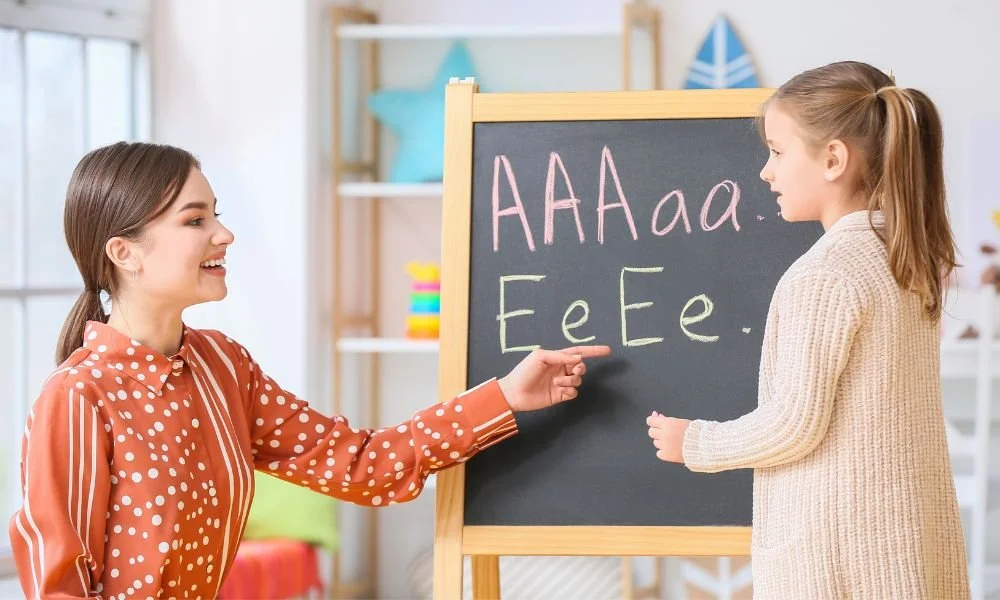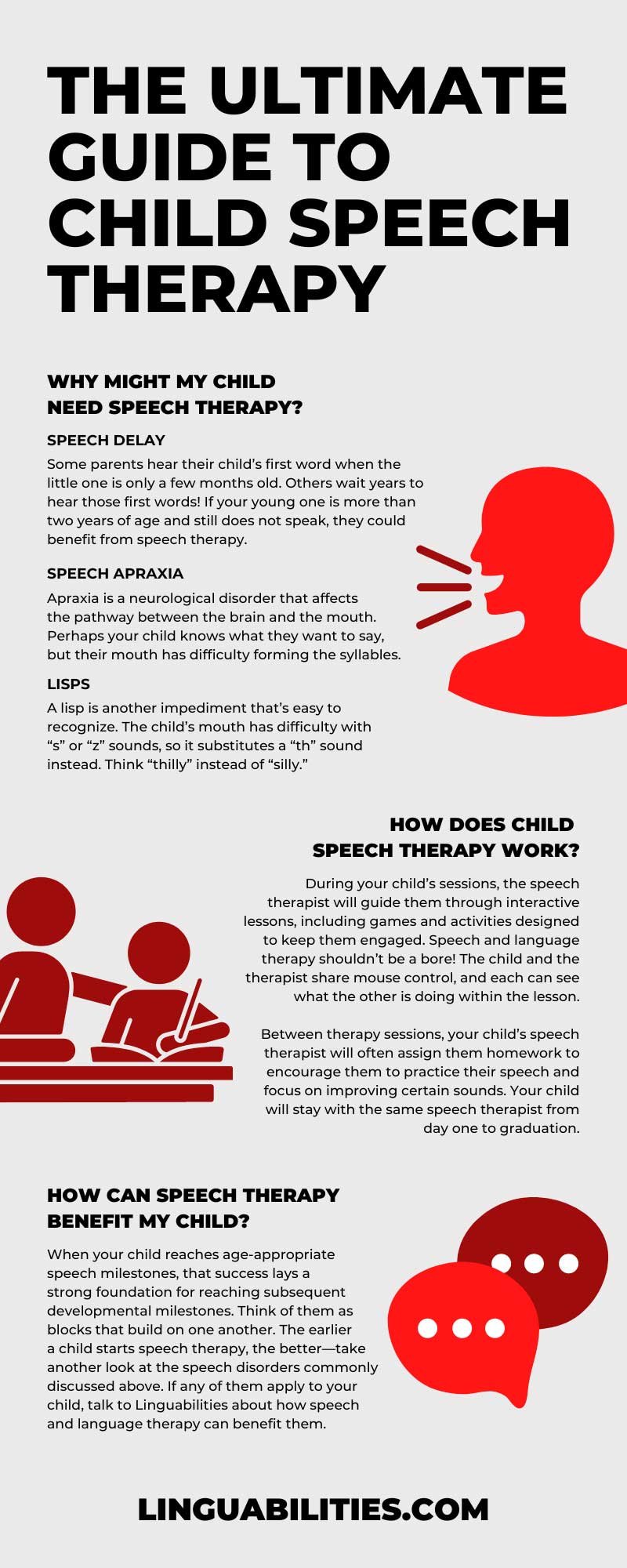Language and communication are crucial parts of a child’s development. We all need to learn how to interact with other people in a way that’s efficient and understandable. If your child experiences difficulty with speech or language, that impediment can affect other areas of their social development.
However, speech and language difficulties are not immutable. Your child can absolutely learn to express themselves effectively—some kids just need a little more assistance than others. That’s where speech therapy comes in.
Speech therapists who specialize in working with kids are highly trained professionals with a background in early childhood development. They use a variety of teaching tools and modalities to help your child reach age-appropriate developmental milestones.
If you are skeptical about the benefits of child speech therapy, read on for Linguabilities’ ultimate guide. We’ll answer your questions and provide context for the importance of speech and language development.
Why Might My Child Need Speech Therapy?
Speech therapists who treat children work with them to improve many aspects of their speech and communication. Do any of the following apply to your little one?
Speech Delay
Some parents hear their child’s first word when the little one is only a few months old. Others wait years to hear those first words! If your young one is more than two years of age and still does not speak, they could benefit from speech therapy.
Speech Apraxia
Apraxia is a neurological disorder that affects the pathway between the brain and the mouth. Perhaps your child knows what they want to say, but their mouth has difficulty forming the syllables. Kids with apraxia are often described as incoherent or difficult to understand. They are likely very frustrated that their peers can’t comprehend what they’re trying to say.
Stutters
Stuttering or stammering is a common impediment to speech and one that children’s speech and language therapy can correct. Stutters often show up as repetition of words or syllables; however, some kids who stutter also elongate their syllables or abruptly stop speaking.
Lisps
A lisp is another impediment that’s easy to recognize. The child’s mouth has difficulty with “s” or “z” sounds, so it substitutes a “th” sound instead. Think “thilly” instead of “silly.”
Other Speech Sound Disorders
When a child has a hard time with certain sounds, they will often substitute them for ones that are easier to pronounce. Maybe they can’t articulate “r” sounds, so they use the letter “w” instead. “Read” becomes “wead,” for example. “Sh” and “th” sounds can also pose challenges to a child with a speech sound disorder.
How Does Child Speech Therapy Work?
Traditionally, speech therapy (for both children and adults) has been done in person, either in the speech therapist’s office or in the patient’s home. However, Linguabilities recognizes that long waiting lists and faraway offices often pose challenges to families that need a speech therapist. That’s why we hold our child speech therapy sessions online!
We have been pioneering virtual speech therapy solutions since long before the COVID-19 pandemic popularized telemedicine. Our speech therapists use a platform called Zoom along with educational games, videos, and activities to connect with patients and their families.
During your child’s sessions, the speech therapist will guide them through interactive lessons, including games and activities designed to keep them engaged. Speech and language therapy shouldn’t be a bore! The child and the therapist share mouse control, and each can see what the other is doing within the lesson.
Between therapy sessions, your child’s speech therapist will often assign them homework to encourage them to practice their speech and focus on improving certain sounds. Your child will stay with the same speech therapist from day one to graduation. That way, they’ll develop a positive relationship with their therapist and see their therapy sessions as positive and exciting!
How Can Speech Therapy Benefit My Child?
Strong language and communication skills are closely linked to high self-esteem and confidence in children. When a kid is able to express their wants and needs clearly, they feel heard!
This does mean the inverse is often true. Children who struggle with speaking often experience frustration and sadness. They know that other people can’t understand them, and they know they can’t do anything about it. Kids are often more perceptive than they let on; they know they can’t fix a speech difficulty all by themselves. Speech and language therapy could be one of the greatest gifts you can give your child.
When your child reaches age-appropriate speech milestones, that success lays a strong foundation for reaching subsequent developmental milestones. Think of them as blocks that build on one another. The earlier a child starts speech therapy, the better—take another look at the speech disorders commonly discussed above. If any of them apply to your child, talk to Linguabilities about how speech and language therapy can benefit them.
Often, children with strong verbal speech skills are more adept at picking up on non-verbal communication than those with speech difficulties. They make better connections between a person’s words and their body language or facial expressions.
In general, kids who have age-appropriate speech and language development are more readily able to socialize with their peers. They are confident, quick to learn, and in a better emotional place than kids who struggle to speak.
Help your beloved child grow into an adult with high emotional intelligence and a strong sense of self by introducing them to empathetic, high-quality speech therapy. This ultimate guide to child speech therapy can help you decide if speech and language therapy is the right solution for your child.
If your child is struggling to pronounce certain words, or if they are walking but not talking, reach out to Linguabilities. Our highly trained speech and language therapists are dedicated to boosting kids’ confidence by correcting speech sound disorders and playing interactive, educational games designed to encourage language development. Early intervention is crucial to fostering that development, so don’t delay in contacting the experts at Linguabilities.



